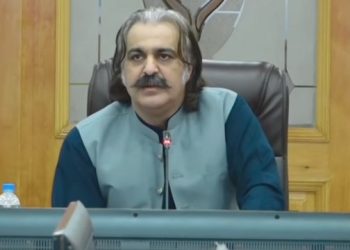PESHAWAR: The Khyber Pakhtunkhwa (KPK) government announced that it will provide a cash grant of Rs200,000 to each deserving bride during mass wedding events organized at divisional and district levels across the province.
As per tv channel report, this decision was made during a high-level meeting chaired by KP Chief Minister Ali Amin Gandapur, which focused on welfare initiatives, including the effective use of Zakat and dowry funds.
Meeting was attended by the province’s social welfare minister, senior officials, the Peshawar commissioner, deputy commissioner, and other relevant authorities.
Key decisions were taken to support underprivileged segments of society, including the launch of a mass wedding program.
Report says, Under the program, mass wedding events funded by the provincial government will benefit over 4,000 underprivileged girls, with each bride receiving Rs200,000 in cash. Government also stressed the need for clarity to make sure that only those who qualify get this support.
In Pakistan, weddings are often expensive, and the burden of dowry can postpone marriages. Mass weddings, where many couples get married in a single event, are a common way to help low-income communities, with support from the government, NGOs, and generous donors.
ALSO READ
KPK government announces December advance salaries for Christian employees
The meeting also approved permanent funding for Panahgah (shelter homes) through the provincial budget and the distribution of wheelchairs to disabled students, starting with higher education institutions. Additionally, the establishment of old age homes with living and recreational facilities was decided.
As per report, KPK government plans to start “Orphan Cards,” giving Rs5,000 each month to school-going orphans, and is thinking about starting “Ration Cards,” giving Rs5,000 each month to elderly widows in the province.
CM Gandapur told the authorities to complete the plans within a week, highlighting the government’s promise to help the poor and follow the idea of a welfare state.












